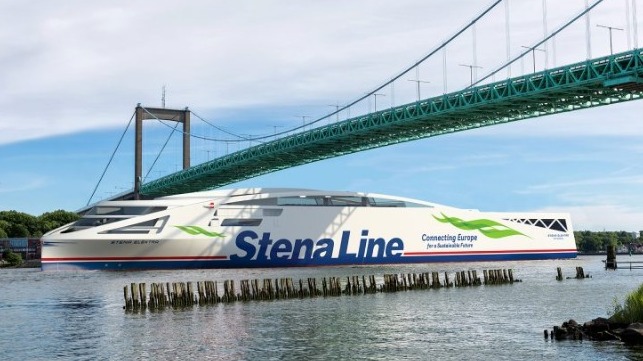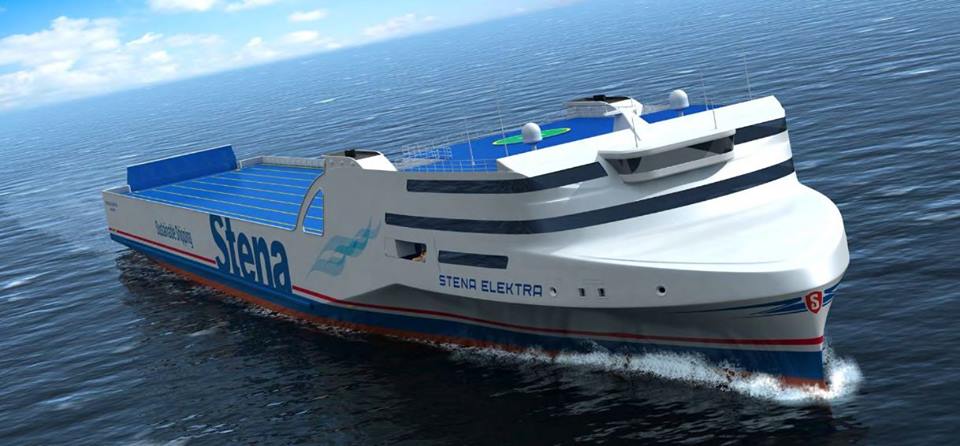Stena Proceeding with Electric Ferry for Gothenburg Decarbonization

To speed up the transition to fossil-free fuels in the transport sector, Stena Line, Volvo Group, Scania, and the Port of Gothenburg have joined forces to bring about a significant reduction in carbon emissions linked to the largest port in Scandinavia. The aim is to cut emissions by 70 percent by 2030, including a commitment from Stena to proceed with an all-electric ferry.
Named the “Tranzero Initiative,” the initiative includes the electrification of sea transport as one of its goals. The focus is also on the one million truck transports and the 55,000 tons of carbon emissions generated from road transports to and from the Port of Gothenburg each year.
“No single organization or individual holds the key to meeting the challenges ahead of us,” said Elvir Dzanic, Gothenburg Port Authority chief executive. “Collaboration is crucial and we are pleased to bring on board two of the world’s largest truck manufacturers and the world’s largest ferry company. With our collective expertise, breadth, and market presence we can make a real difference.”
The project is commencing with a “needs analysis,” and mapping of freight flows in and around the port to aid with establishing a fossil-free fuel infrastructure. The companies joining the initiative have each committed to introduce a series of interlinked measures designed to accelerate the switch to fossil-free fuels.

Design for Stena Elekra, a battery-powered ferry (Stena Teknik)
As the largest ferry operator, Stena Line will play a key role by introducing new fossil-free vessels into service on the Gothenburg-Frederikshavn route by 2030. Stena had previously discussed the concept of a battery-powered ferry. At the time they said the project still faced hurdles to become profitable. Stena has now committed to proceeding with the vessel.
“We are now transforming Stena Elektra from a vision to a commercially viable vessel,” said Niclas Mårtensson, CEO of Stena Line Group. “Within a year we plan to present the outline specifications and by the latest of 2025, we plan to order the first vessel. This will be a quantum leap in short-sea shipping and a huge step towards fossil-free shipping.”

that matters most
Get the latest maritime news delivered to your inbox daily.
Stena had previously said that with the rapid increase of capacity and descending prices of batteries, they believed it was only a matter of time until the Stena Elektra would be economically viable. Deputy Technical Manager of Stena Teknik Henrik Nordhammar discussed the concept highlighting that by removing the fuel engines, they also gained the space required for fuel tanks, piping, purifiers, heaters, and exhaust gas systems. However, he noted another challenge would be how to recharge the batteries with 50 MWh of electricity during the 90 minutes in port.
As part of the overall project, the Gothenburg Port Authority will produce the necessary infrastructure and access to fossil-free fuels for heavy vehicles, including electric power, HVO, biogas, and hydrogen gas. Volvo and Scania will put commercial offerings in place for their heavy truck customers, ensuring that in time land transport becomes fossil-free following the goals laid down by the port.
